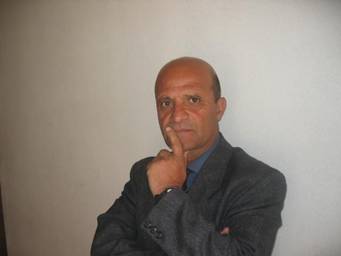


Written by: Drs. M. Nabi Haikal
A U-turn in the history of a Nation
Long-waited and much speculated news about government talks with Taliban is finally given by the minister of foreign affairs of Afghanistan. The place of talks, the minister said is not yet agreed upon.
With the breaking of this news almost everyone is asking: is it right to negotiate with Taliban for forming a power-sharing government?
From insider's perspective, the Taliban as a political group can not be ignored because of its immense presence in military terms as well as because of their willingness to share the political power.
The outsider's perspective raises the negative effects of such a political deal for the nation and for democracy.
From both perspectives one can pose two main questions concerning two important subjects: the goal of the very costly war on terror and the goal of building a democratic society in Afghanistan. Both are interconnected and there is a correlation between them.
Those who favor negotiation with Taliban can argue that negotiation aimed at political power-sharing with the moderate faction of Taliban broaden the consensus-base of democracy on one hand and change the balance of power in the battlefield on the other. It suits the war on terror as well as rebuilding efforts in Afghanistan. Peace is a priority, where military- wining is not at sight. A long and troublesome journey is a head, because of the preconditions set by Taliban before entering negotiations. The crux of the matter is what would it mean for the Afghan nation and for the international community, if the current coalition is enriched with a new political faction? What quality will this step add to corrupt, irresponsive, non- professional political machinery, and hence to the kind of society we are expecting to build?
It will also ease the situation on the ground a bit, strengthen the position of Afghan government which would enable the national forces to take the responsibility of tackling the problem at national level and consequently the way will be paved for withdrawal of foreign troops from this country.
Nothing is wrong with this argument, because it suits both the Afghan government and the international coalition in the war against terror.
Sharing political power with the moderate Taliban fraction draws the line between national insurgency and international terrorism. It also presents an alternative solution which can be followed elsewhere outside Afghanistan.
The news about Taliban coming back reminds the horrible experience of Taliban's rule and the nightmares associated with it.
The lack of guarantees that the state of affairs will not worsen or take a U –turn to 2001 and before that, is a matter of great concern to many circles , in particular, inside Afghanistan. The fear that a once- forgotten nation will be forgotten again is a real fear for those who consider a radical change, in a fragile system created so far, as the only solution to the worsening situation in Afghanistan. Specially the new decision to establish Arbakai (tribal armed units), in the turbulent provinces in the south and East, will strengthen tribal rule, the situation which exists in tribal areas beyond Deurandline, in these areas.
Any change must introduce positive and progressive elements leading to political participation without any kind of bias.
There are good reasons to think that any political solution must guarantee the political equality and individual liberties, to make sure that countervailing forces are well established in the society and a U-turn chance is minimized.
These fears are not rooted only in what is done by Taliban during their reign ( 1996-2001) and they are doing now, but emanate also from the fragility of political system, the leadership style and culture, low-level of legitimacy, lack of rule of low and a non-competent government.
The fact that the Western -Coalition has merely been relying on its Cold War – political allies, since toppling Taliban in 2001, make many observers think a fanatic element will be added to the existing bias. Those who are worried about the future are those who were criticizing ex -Mujahideen and Taliban's rule as well as the current political elites for doing more harm than good to the nation.
Ends